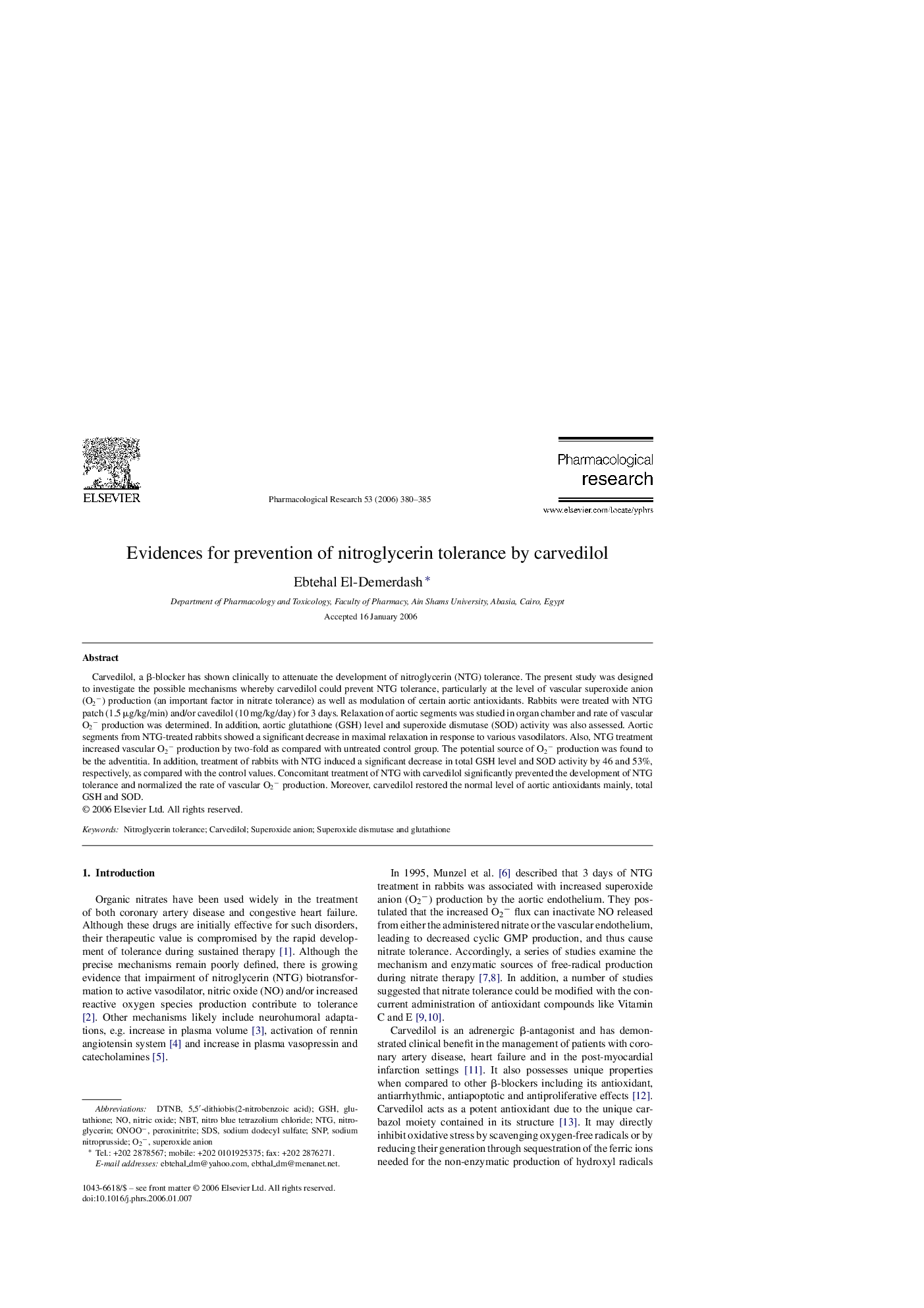| Article ID | Journal | Published Year | Pages | File Type |
|---|---|---|---|---|
| 2562689 | Pharmacological Research | 2006 | 6 Pages |
Carvedilol, a β-blocker has shown clinically to attenuate the development of nitroglycerin (NTG) tolerance. The present study was designed to investigate the possible mechanisms whereby carvedilol could prevent NTG tolerance, particularly at the level of vascular superoxide anion (O2−) production (an important factor in nitrate tolerance) as well as modulation of certain aortic antioxidants. Rabbits were treated with NTG patch (1.5 μg/kg/min) and/or cavedilol (10 mg/kg/day) for 3 days. Relaxation of aortic segments was studied in organ chamber and rate of vascular O2− production was determined. In addition, aortic glutathione (GSH) level and superoxide dismutase (SOD) activity was also assessed. Aortic segments from NTG-treated rabbits showed a significant decrease in maximal relaxation in response to various vasodilators. Also, NTG treatment increased vascular O2− production by two-fold as compared with untreated control group. The potential source of O2− production was found to be the adventitia. In addition, treatment of rabbits with NTG induced a significant decrease in total GSH level and SOD activity by 46 and 53%, respectively, as compared with the control values. Concomitant treatment of NTG with carvedilol significantly prevented the development of NTG tolerance and normalized the rate of vascular O2− production. Moreover, carvedilol restored the normal level of aortic antioxidants mainly, total GSH and SOD.
